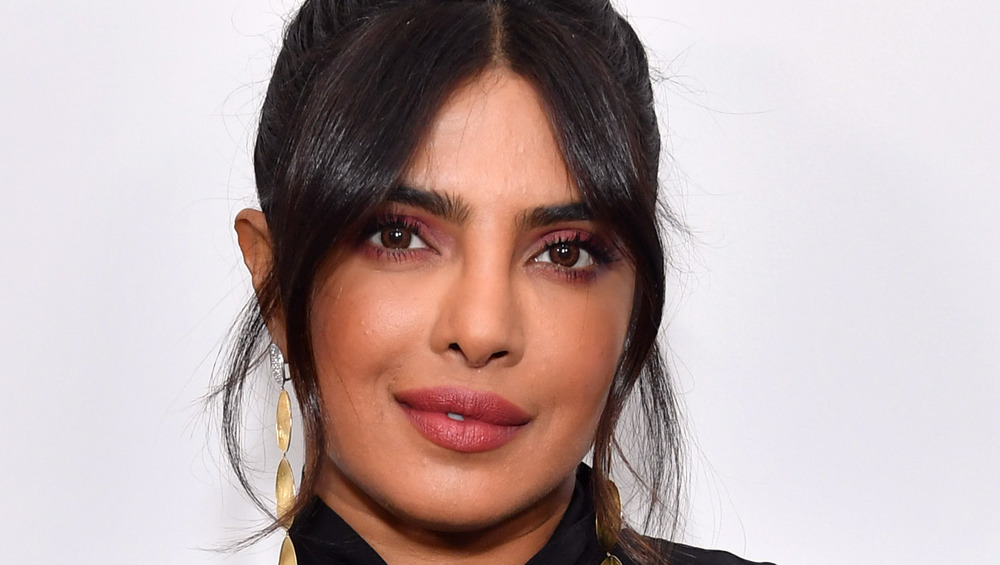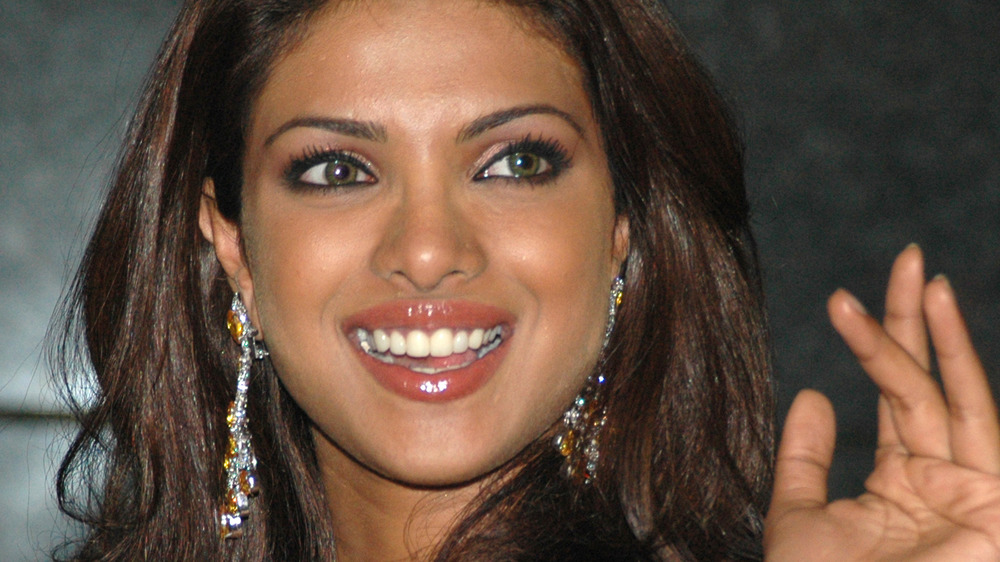What We Learned From Priyanka Chopra's Memoir
Actor and producer Priyanka Chopra, for all her accomplishments, is usually a closed book, preferring to keep her struggles private. But her debut memoir, Unfinished, which was released on Feb. 9, 2021, will give fans an inside look into Chopra's life journey for the first time. As Chopra told The Hollywood Reporter, this was her very hope when she set out to reflect on her own life in writing. "I have become dinner table conversation probably... and people have opinions on why I have taken certain choices without knowing me," Chopra said about the decision to set the record straight.
Of course, her famous musician hubby Nick Jonas is heavily featured in the book, according to The Hollywood Reporter, with Chopra detailing why she fell for Jonas ("He was this big, giant wave that sort of just took me away, and I was OK at that point to be taken away by this extremely self-assured, confident, creative man," Chopra wrote). The explanation behind the words "Daddy's Little Girl" being tattooed prominently on her right wrist, as seen on the book's cover, is also revealed, per GQ India. It is a commemoration of her close relationship with her deceased father, who died from cancer in 2018.
However, there are some shocking reveals in Unfinished that we never would have anticipated from the private star carving her own path in Hollywood.
Priyanka Chopra faced racism both in school and her career
Priyanka Chopra took a great leap forward for media inclusivity simply by starring in ABC's FBI drama series Quantico, as such shows rarely include an Asian lead. Sadly, even a seemingly strong woman like the Indian-born Chopra faced racist attacks. Via The Hollywood Reporter, Chopra writes in her memoir Unfinished about American high school experiences like being told "Brownie, go back to your country" and even manhandled as bullies stuffed her into lockers like a hackneyed scene out of a bad 1980's movie. "As a 15-year-old, it really broke away at my spirit," Chopra admitted.
Chopra was refreshingly candid about her own participation in systematic racism in a January 2021 Marie Claire interview while promoting Unfinished. Chopra shared her "deep remorse" with the magazine over promoting skin-whitening creams while still a Bollywood actor. "[Skin lightening] was so normalized in South Asia," Chopra confessed, saying she used to use talcum-powder cream on her face. Even the media, as Chopra wrote in her memoir, called her skin tone pejorative terms like "dusky."
Chopra is clearly comfortable in her own skin now, as evidenced in her own beauty brand, Anomaly, which she created because "I'm an anomaly, and everyone else is in their own way" (per Marie Claire). Racism wasn't the only form of bigotry Chopra faced throughout her life and career, however.
Priyanka Chopra endured her share of sexism as an actor
Priyanka Chopra was not spared the systematic sexism rampant in film industries globally. As the actor writes in her memoir Unfinished, a filmmaker who met with her in 2000 gave her some unsolicited "advice," per The Tribune. As the "second most beautiful woman in the world," per a 2017 Buzznet poll (via Elle), Chopra was told to have her "proportions fixed." Chopra detailed his suggestion that she gets a "boob job, fix my jaw, and add... more cushioning to my b***." This is all after he made the actor stand up and "twirl for him." What made Chopra's confession truly chilling was that her then-manager agreed with the demeaning assessments.
A second, similar incident occurred on the set of a film — and this time, Chopra took a stand and walked out. As GQ India reported, an excerpt from Unfinished recalls how Chopra was asked by the director to strip for a song portion, leading her to connect her stylist via telephone with him to clarify instructions. Speaking in Hindi, the director said, in front of Chopra, what roughly translates as "whatever happens, panties should be seen. Otherwise, why would people come to watch the movie?" She left the film altogether the next day.
We're glad Chopra has opened up about such vulnerable moments — it's clear that, in addition to her talent, she has a good example to set for young people everywhere.



